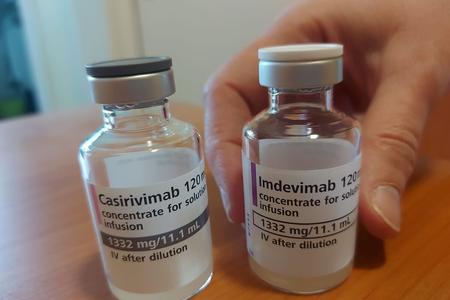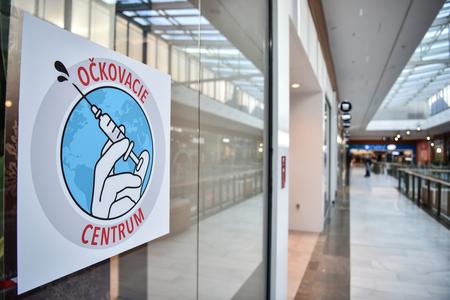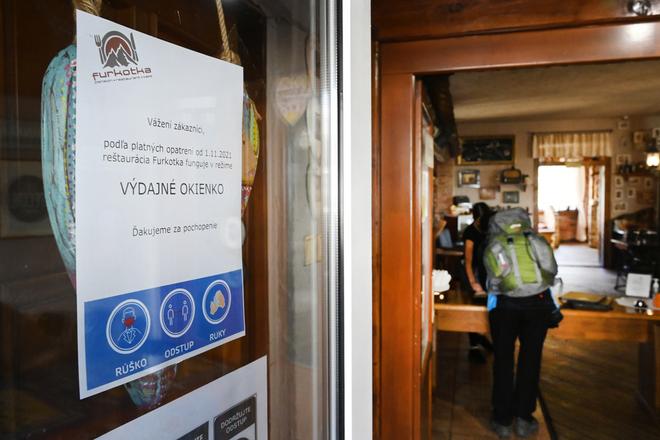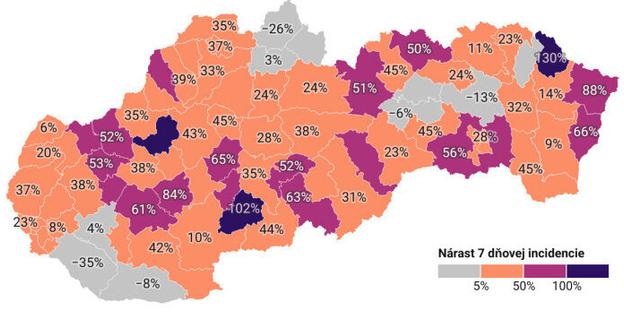The anti-pandemic measures adopted to counter the Omicron wave might be relaxed in late March.
Our paywall policy:
The Slovak Spectator has decided to make all the articles on the special measures, statistics and basic information about the coronavirus available to everyone. If you appreciate our work and would like to support good journalism, please buy our subscription. We believe this is an issue where accurate and fact-based information is important for people to cope.
“Yesterday we attended a meeting of the group of experts, where the prime minister was also present, and spoke about the situation after the Omicron wave is over and the first draft of the measures with the proposal that we switch into a regime that would enable people to live a normal life in late March,” said Health Minister Vladimír Lengvarský (OĽaNO nominee) before the February 9 cabinet session, as quoted by the TASR newswire.
PM Eduard Heger (OĽaNO) confirmed that if the number of infected people drops, the measures will be gradually lifted. People might still be required to wear FFP2 respirators at some places.
Yet, Slovakia sees the number of people who test positive for Covid increasing at the moment, with another record being broken when 20,582 out of 36,766 PCR tests completed on February 8 were positive.
Some districts seem to have reached the peak of the Omicron wave, with the number of new infections being stable or even dropping.
Situation in hospitals stable
The seven-day incidence is quite high in many districts. For example, it exceeds 3,000 in the districts of Žilina, Skalica and Bytča, which means that about 3 percent of their inhabitants have tested positive. The average seven-day incidence for the country is 2,300.
The situation in hospitals remains stable, despite the expected increase in the number of patients, according to Lengvarský. Currently, more than 2,200 Covid-infected people need to be hospitalised (up 35 percent compared to last week), and there are about 250 new hospital admissions a day, as the statistics of the Health Ministry show.
As for the age groups, there were mostly younger people at the start of the Omicron wave who needed to be hospitalised, but in the past few days, also the share of older people in hospitals is on the rise, said Matej Mišík, head of the Institute for Health Analyses, which runs under the Health Ministry, as reported by the SITA newswire.

The number of cases when ambulances have to be dispatched to treat Covid patients increased compared to last week as well, with the steepest rise being in Prešov Region and Košice Region.
The state meanwhile plans to increase the testing capacities and to ask medical students to be more involved in treating the patients in hospitals, SITA reported.
Vaccination still important
Even though the interest in getting vaccinated against Covid is dropping and the government is discussing with experts how the measures might be lifted, vaccination remains important, Lengvarský said.
“Measures might be cancelled, but we still don’t know what the autumn brings,” he added, as quoted by SITA. “The autumn wave will depend on the vaccination rate in the country.”

The government is not preparing any special motivation to boost the vaccination rate. Vaccination will probably be moved to the surgeries of general practitioners, the minister noted.
He also said that there is no proposal to introduce mandatory vaccination against Covid for now.



 Illustrative stock photo (source: TASR)
Illustrative stock photo (source: TASR)
 Seven-day incidence of cases (source: Health Ministry, NCZI)
Seven-day incidence of cases (source: Health Ministry, NCZI)